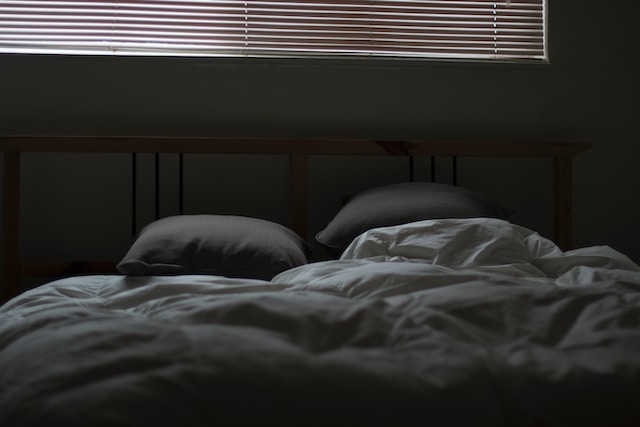Sleep is essential for our overall health and wellbeing. When sleeping the body undergoes a series of changes that enable rest, which is vital for overall health.
Sleep allows the brain and body to slow down and engage in a process of recovery, which promotes better physical and mental performance the next day and over a longer term.
When we don’t sleep these fundamental processes are short circuited, which then influences our mood, thinking, concentration and energy levels. Getting the sleep, you need is crucial.
There are four stages of sleep, which are broken down into two categories: Rapid Eye Movement (REM) and non-REM sleep. These categories are important, what happens during REM sleep is dramatically different to what happens during the non-REM stages.
The first three stages are composed of non-REM activity:
- Stage 1 is short, representing the act of dozing off and transitioning into sleep.
- Stage 2 the mind and body slow down as you settle into sleep.
- Stage 3 is also known as deep sleep. The body is in recovery mode, and everything slows down even further.
- Stage 4 is REM sleep. During REM periods, brain activity shoots back up to levels like those when you are awake.
Research demonstrates that sleep reinforces the cardiovascular and immune systems, it also helps to regulate metabolism.
During sleep our heart rate and breathing slows, and our muscles gradually relax and the body’s total energy expenditure drops.
Sleep and the body’s internal clock or circadian rhythm as it is also known, plays an important role in regulating the production of hormones.
When you have problems sleeping, or you aren’t getting enough sleep you may not get the restorative benefits that come from what normally happens during sleep.
Being in a prolonged state of sleep deprivation on a regular basis can also increase the risk of diabetes, high blood pressure, heart disease and stroke. It is also linked to reduced immune functions, as well as memory and cognitive functions.
Our support links below are for anyone who is if perhaps struggling with their Sleep Pattern, if you can identify your lack of Sleep is due to Anxieties or Grief, then please have a look at our other resources which are available and cover these areas:
Sleep Resources
The Sleep Foundation
https://www.sleepfoundation.org/
The leading source for evidence-based, medically reviewed sleep health information and in-depth
product testing
The Sleep Charity
www.thesleepcharity.org.uk
National Sleep Helpline: 03303 530 541
NHS Support
www.nhs.uk
Information on Insomnia, sleep apnoea, hypersomnia, sleep paralysis and more
British Sleep Society (BSS)
www.sleepsociety.org.uk
A charity for medical, scientific and healthcare workers dealing with sleep disorders in the UK
British Snoring & Sleep Apnoea Association
britishsnoring.co.uk
Information and support for people affected by snoring and sleep apnoea.
The Sleep Apnoea Trust Association
sleep-apnoea-trust.org
Information and support for people who experience sleep apnoea, and their partners and families.
Sleepstation
https://www.sleepstation.org.uk/
Sleepstation is a clinically validated sleep improvement programme that can help you sleep better
Sleepio
https://www.sleepio.com/
an organisation dedicated to helping people sleep better
Young Minds
www.youngminds.org.uk
For young people struggling to sleep


